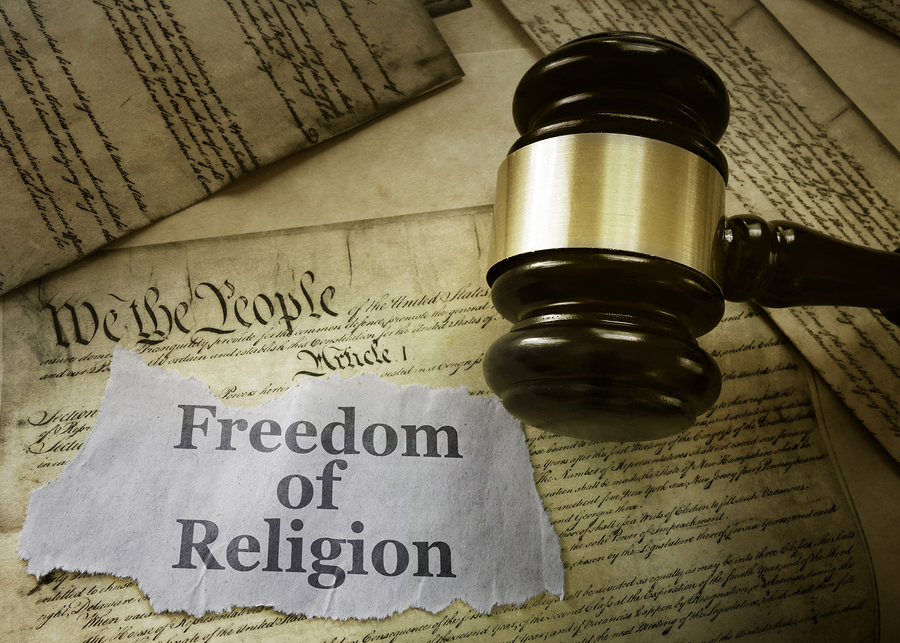
In the synagogue congregation exactly where I served for 40 decades, the famous story tells of a developing supervisor who set up a thermostat in a distinguished put so that the worshipers could control the temperature with out altering anything. But the fret is not a joke Air conditioning in a constructing that serves various crowds is the two important and costly. And whilst the generosity of parishioners is limitless when it comes to serving a mission, it is the incredible man or woman ready to fund a furnace update.
So who ought to pay for these improvements? I want we could all concur that the reply is not the taxpayer.
However, this is not the case. Buried in the 2,700-site infrastructure invoice that Congress is debating is a provision that would provide parishes with tax-funded help in upgrading their HVAC programs to fulfill electricity efficiency specifications. On the area, this may perhaps feel like a harmless gesture. But it is not. It is just the latest blurring of the proper lines between religion and govt. Each time we pour more tax pounds into spiritual establishments, it becomes much more difficult to halt the future exertion. We moved from funding basic safety grants to funding HVAC. Why not upgrade the plumbing or lighting to help you save cash that the household of God can use for its mission? No subject how worthwhile the mission is, the government shouldn’t fund it.
Proponents of authorities funding for spiritual institutions usually argue that areas of worship and other spiritual institutions ought to not be disadvantaged simply because of their affiliation. What is great for a community – sidewalk maintenance, electrical wiring, constructing emissions – is usually excellent no matter of irrespective of whether the intent of a structure is to provide groceries, protected individual cost savings, or give instruction classes and devices. At initially look, it appears like an irrefutable argument about the seamlessness of group.
This assertion ignores the tax-exempt profit spiritual institutions (and other nonprofits) delight in. No a single is arguing that initial responders thoroughly backed by taxpayers’ revenue really should be deterred from preserving and defending a put of worship. But it is insincere for a tax-exempt group to declare rights to all factors of public aid though vigorously defending the exemption from taxes paid out by the for-revenue local community when finding rid of a lot of of the prerequisites that secular nonprofits satisfy have to.
With point out funds arrives the government’s obligation to be accountable for how the cash are applied. And any person with a rudimentary understanding of the Very first Amendment’s independence will explain to you that authorities regulation of faith must be avoided if possible.
Objection to the funding of faith by taxpayers is significant, even if it is unpopular. Protection grants to locations of worship, catastrophe aid for harmed religious establishments, even the donation of general public surpluses to a position of worship are inappropriate. Regretably, the the moment noisy neighborhood of spiritual institutions that the moment held this perspective has dwindled above the past 20 several years.
When the Spiritual Freedom Restoration Act (RFRA) grew to become legislation, its intent was to guard religious tactics amongst Individuals that numerous Us citizens were unfamiliar with. Sufficient provision should really be created for so-known as “non-normative” tactics that do not interfere with organizational conduct, no matter whether personal or public. A head masking, ritually prescribed jewelry, a short break for private worship – these were the behaviors that caused a sensation among the greater part. RFRA was made to shield the liberty to apply one’s religion.
Even so, what was built as a protect turned a sword. The sensible lodging justification has been employed to exempt people today who increase a spiritual objection in get to allow the procedures of other individuals which are portion of the rights and privileges of citizenship. We have all viewed the intense battles above wellbeing care, marital position and even the bathrooms, which are governed by permanent law but are consistently becoming challenged by teams and persons demanding an exemption dependent on private perception.
Manipulation of language and placement is a popular tactic of those searching for to subject matter the intent of the legislation to its interpretation.
The reasoning that allocating taxpayers’ money for the protection of believers or restoring a house of worship broken by a hurricane is used to argue that the exact same house of worship that was formerly capable for taxpayer help must be re-experienced is pretty much the definition of insincere.
Unpopular as we believed, it would be clever to don’t forget that yesterday’s unexpected emergency care could very easily turn into modern common of conduct. In other terms, the slippery slope.
It is cynical and exploitative for proponents of this provision in the Infrastructure and Work Act to try to consist of it. Congress should really clear away it. Mainly because of this seemingly unimportant element, no person would like to keep again assistance for suffering citizens or repairs to crumbling bridges.
But it really is improper. And that need to be critical.
